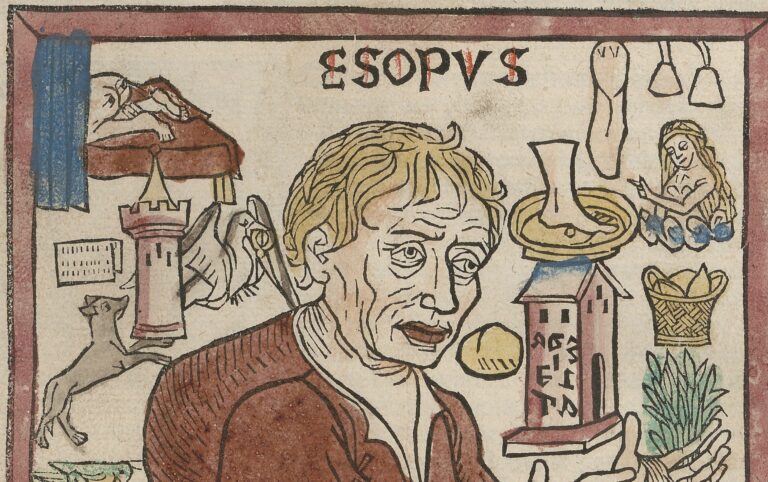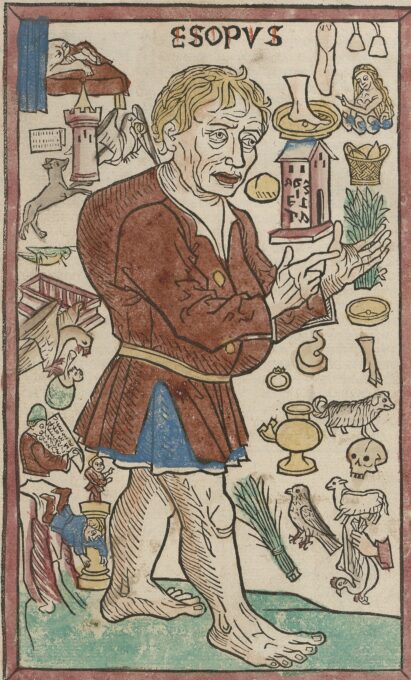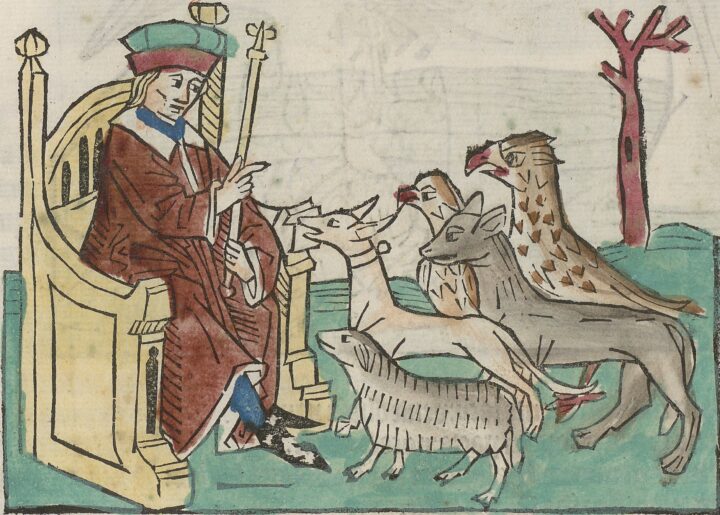Although his existence remains unclear and no original texts by him survive, scattered details of Aesop's life can be found in ancient sources.
Apollonius of Tyana, a 1st-century CE philosopher, is recorded as having said about Aesop:
“Aesop on the other hand had in the first place the wisdom never to identify himself with those who put such stories into verse [poets], but took a line of his own; and in the second, like those who dine well off the plainest dishes, he made use of humble incidents to teach great truths, and after serving up a story he adds to it the advice to do a thing or not to do it. Then, too, he was really more attached to truth than the poets are; for the latter do violence to their own stories in order to make them probable; but he by announcing a story which everyone knows not to be true, told the truth by the very fact that he did not claim to be relating real events.”
- Philostratus, Life of Apollonius 5.11-15, 3rd century AD. Translated by F.C. Conybeare. Loeb Classical Library, 1912.



